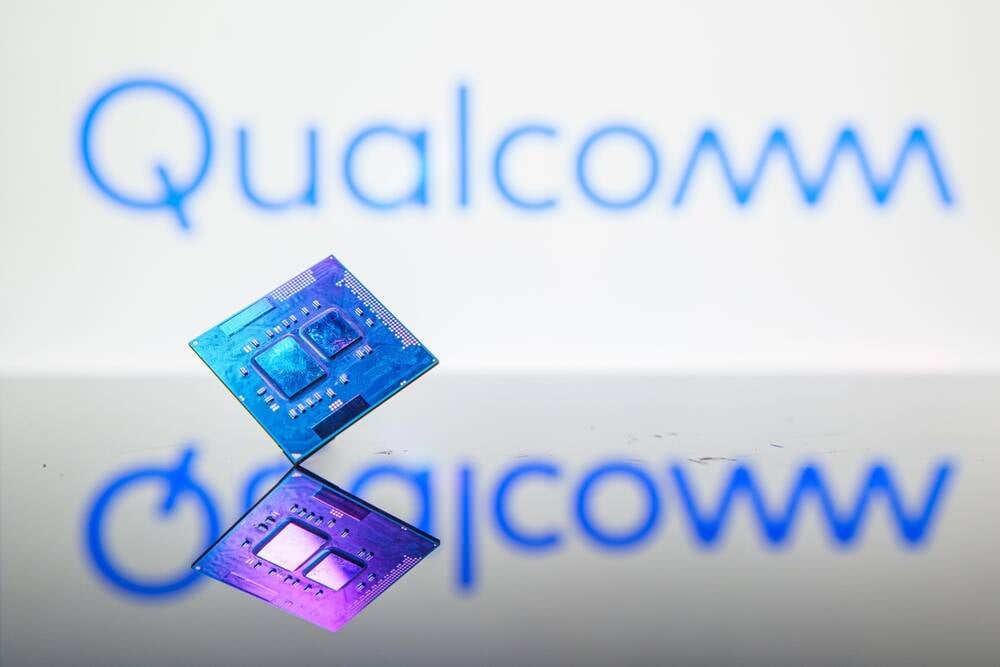Theres No Way Qualcomm Is Buying Intel As Is

Comment Qualcomm may be after more than Intel's PC design business as it has supposedly approached the x86 giant about a possible takeover.
That's what unnamed sources told the Wall Street Journal for a report published Friday. CNBC also said it heard the same thing: That Qualcomm contacted Intel about a potential takeover in recent days.
Surprise, surprise, details regarding the alleged acquisition plans, which are apparently far from certain, are razor thin to say the least. This could be nothing more than Qualcomm wanting to talk to Intel about possibilities.
That hasn't stopped Intel's shares from rallying while Qualcomm's have dipped, as the news met a mix of optimism and apprehension by investors.
The Register asked Intel and Qualcomm for a response. Intel declined. Qualcomm is saying nothing. So instead, we'll emphasize that the logistics of such a bombshell acquisition would be far from trivial if not nigh-on impossible.
Reality check
At the end of its third quarter [PDF] of its fiscal 2024, the three months to June 23, Qualcomm had $7.8 billion in cash and cash equivalents at its disposal and just over $23 billion in total assets. That means Qualcomm, best known for its cellular modems and Snapdragon mobile processors, is almost certainly looking at a stock-for-stock transaction. As of writing, Qualcomm's market cap is $188 billion, just more than double that of Intel's at $93 billion.
Arm's $66B sale to Nvidia killed by competition regulators
FYIThe WSJ suggested this possible takeover might also include selling off some of Intel's assets to others to make the acquisition more manageable. It probably would have to for Qualcomm to stomach the deal, financially and strategically speaking. And even if Intel's board agreed whatever offer may emerge, getting regulatory approval – persuading the US, UK, EU, and others that gobbling up more semiconductor market share will be OK for competition – may not be its only hurdle.
In fact, Chipzilla may not be worth much to Qualcomm unless it can renegotiate the x86/x86-64 cross-licensing patent agreement between Intel and AMD, which dates back to 2009. That agreement is terminated if a change in control happens at either Intel or AMD. There are also prior pacts between AMD and Intel.
While a number of the aforementioned patents expired in 2021, it's our understanding that agreement is still in force and Qualcomm would be subject to change of control rules. In other words, Qualcomm wouldn't be able to produce Intel-designed x86-64 chips unless AMD gave the green light. It's also likely one of the reasons why no one bought AMD when it was on the ropes; whoever took over it would have to deal with Intel.
- AMD sharpens silicon swords to take on chip and AI rivals
- Qualcomm reportedly eyeing Intel's PC design biz and more
- Pat Gelsinger's grand plan to reinvent Intel is in jeopardy
- Intel frees its Foundry biz – and that's just one of many major shake-ups today
This isn't the first time we've run into rumors that Qualcomm was trying to strip Intel for parts. An earlier report by Reuters citing unnamed sources alleged Qualcomm was interested in picking up Intel's client PC design business.
The WSJ report comes just days after Intel CEO Pat Gelsinger announced plans to spin off its ailing foundry division as a standalone subsidiary; postpone development of its German and Polish foundry sites; and consolidate its automotive and networking and edge (NEX) groups under its client division. All of this in a bid to staunch the tech giant's bleeding.
Qualcomm axes staff, winds down datacenter processor wing
ARCHIVELeading up to the decision, Intel has been the subject of considerable speculation, including reports it planned to completely sell off its FPGA and autonomous driving business units. The chipmaker has since clarified that its plan to take Altera public hasn't changed – it's already spun off and awaiting an IPO – and that it has no plans to give up its majority stake in Mobileye.
Intel isn't the only tech company whose stock has taken a roller coaster ride in response to whisperings. Early this month, Bloomberg cited unnamed sources in a report claiming that the US Department of Justice had issued subpoenas to Nvidia as part of an ongoing antitrust investigation into the GPU giant.
Nvidia later denied the report, saying that while it had made contact with the US government, it had not been subpoenaed. ®
From Chip War To Cloud War: The Next Frontier In Global Tech Competition
The global chip war, characterized by intense competition among nations and corporations for supremacy in semiconductor ... Read more
The High Stakes Of Tech Regulation: Security Risks And Market Dynamics
The influence of tech giants in the global economy continues to grow, raising crucial questions about how to balance sec... Read more
The Tyranny Of Instagram Interiors: Why It's Time To Break Free From Algorithm-Driven Aesthetics
Instagram has become a dominant force in shaping interior design trends, offering a seemingly endless stream of inspirat... Read more
The Data Crunch In AI: Strategies For Sustainability
Exploring solutions to the imminent exhaustion of internet data for AI training.As the artificial intelligence (AI) indu... Read more
Google Abandons Four-Year Effort To Remove Cookies From Chrome Browser
After four years of dedicated effort, Google has decided to abandon its plan to remove third-party cookies from its Chro... Read more
LinkedIn Embraces AI And Gamification To Drive User Engagement And Revenue
In an effort to tackle slowing revenue growth and enhance user engagement, LinkedIn is turning to artificial intelligenc... Read more

